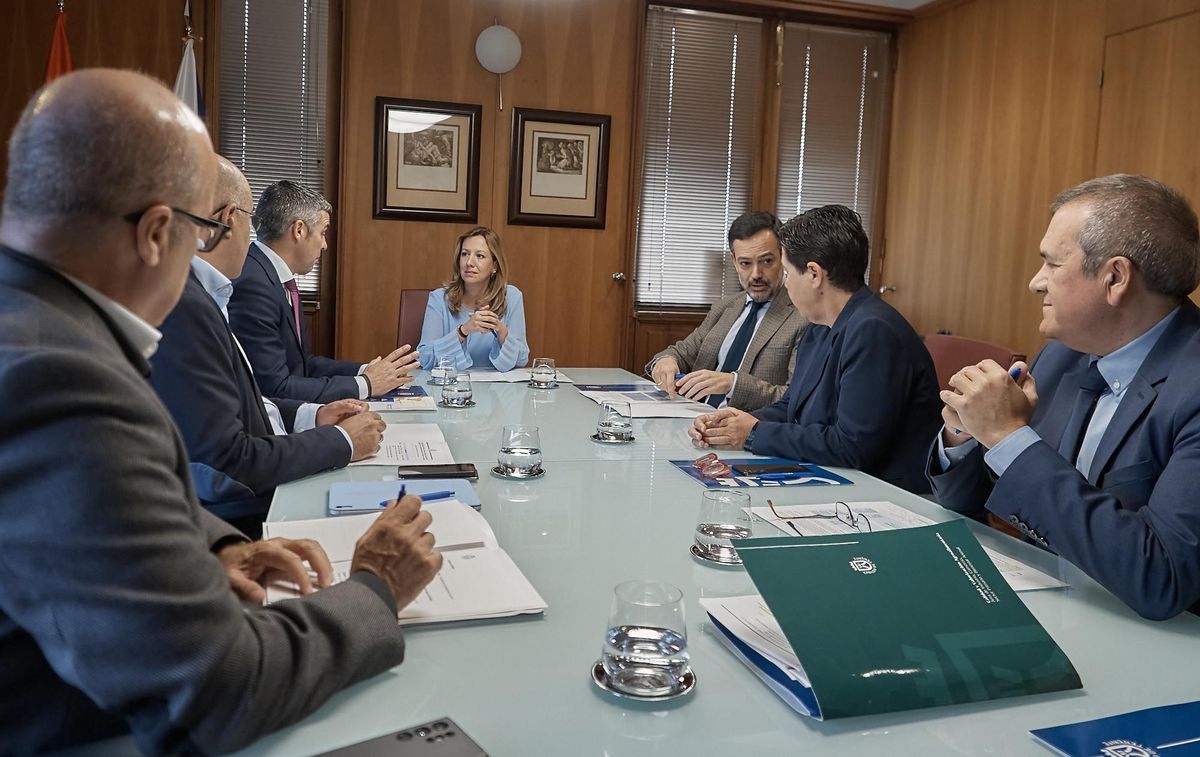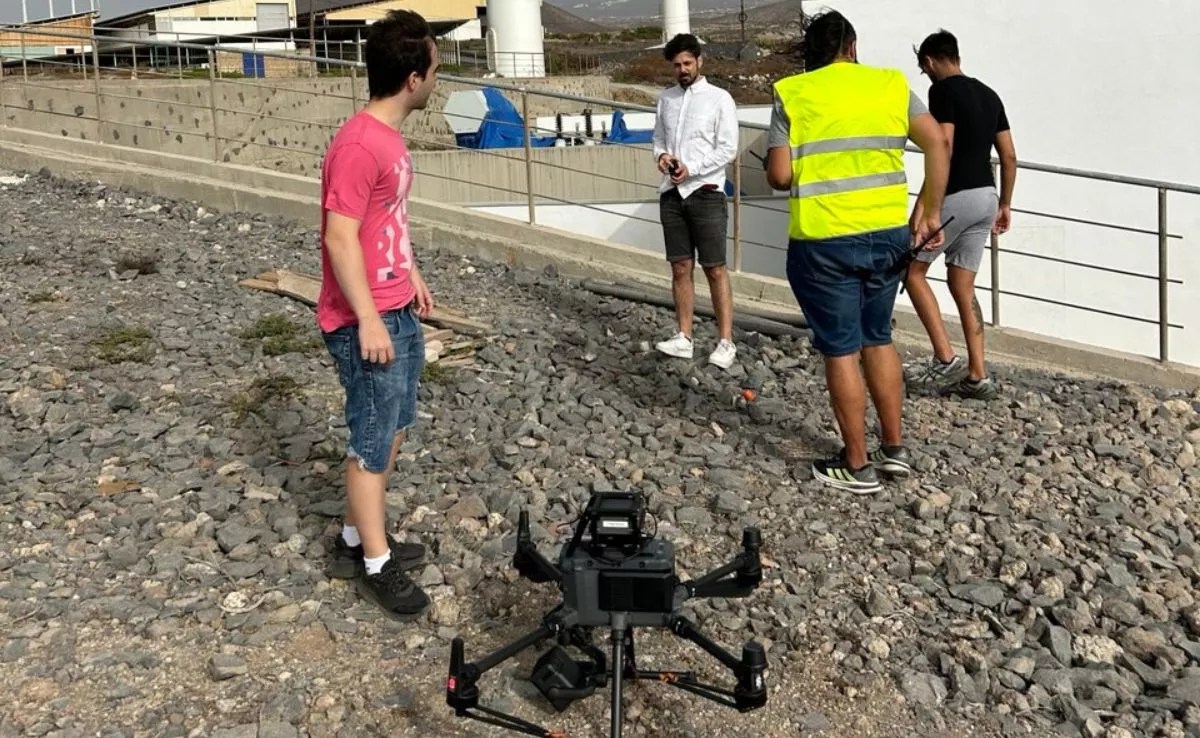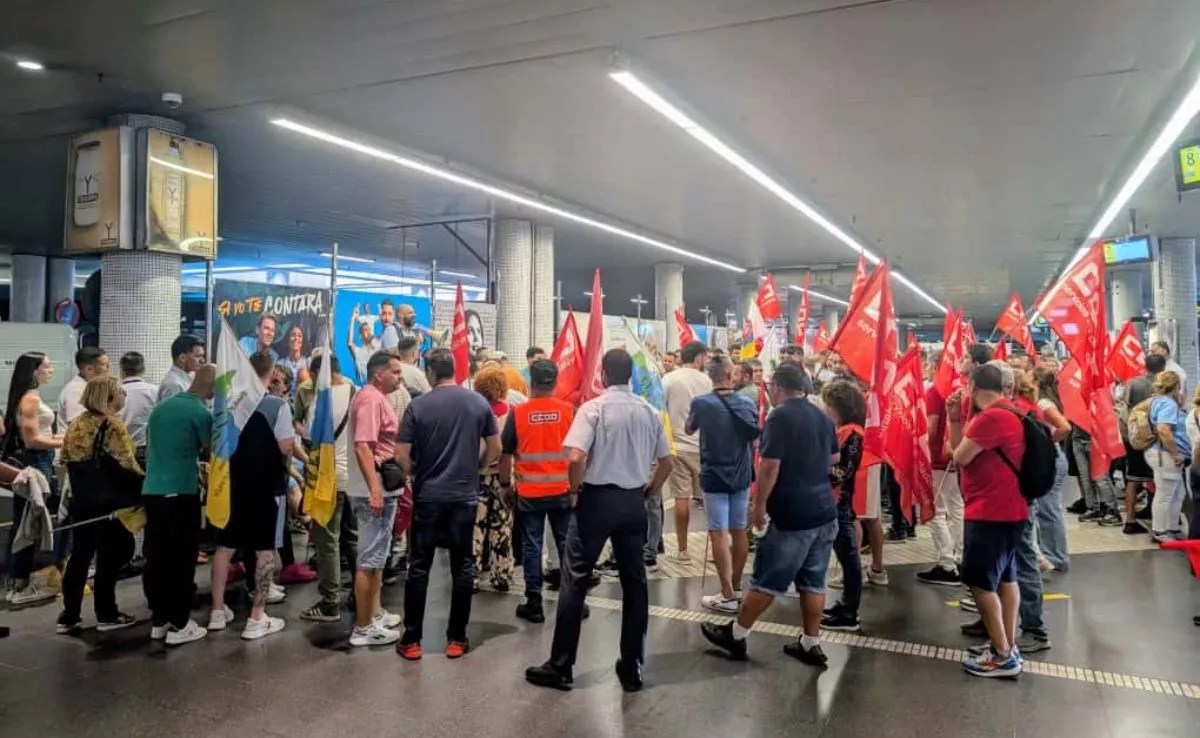One million euros is set to compensate for the reduction in profitability in artisanal fishing in Tenerife. This is the only system –one man, one hook– for catches on the island and archipelago compared to the nets, traps, or fixed nets seen in other regions. This was announced by the Council, as stated by its president, Rosa Dávila, following yesterday’s working meeting with Narvay Quintero, the councillor for Agriculture, Livestock, Fisheries, and Food Sovereignty of the Government of the Canary Islands.
The local funding complements that of the regional government. This was one of the key conclusions of the inter-administrative meeting to coordinate support actions for the Tenerife primary sector. These include analyzing the recent declaration of a water emergency due to drought or promoting the endorsement of the island council to put the interface areas in the mountain into production, crucial factors for tackling the major forest fire that devastated around 12,000 hectares last summer. The government is described as a “strategic partner” for the council in helping farmers, breeders, and fishermen.
The news of the new economic injection comes just a day before Canarian and Tenerife sea professionals demonstrate (today, at xx hours, in front of the Government Sub-delegation in Santa Cruz) against the excess bureaucracy of the European Maritime, Fisheries and Aquaculture Fund (FEMPA) and to demand a higher tuna catch quota. The high costs and the scarcity of fishing in recent times are suffocating the ten brotherhoods on the island. Dávila and Quintero were accompanied by the vice president of the Council, Lope Afonso; councillors Valentín González and Blanca Pérez, in charge of the Primary Sector and Natural Environment; the Director General of Agriculture, Javier Gutiérrez, and the CEO of the Rural Management Company (GMR), Juan Antonio Alonso.

Inter-administrative meeting, yesterday at the Tenerife Cabildo / E.D.
Rosa Dávila expressed her gratitude for Quintero’s visit and his team’s work “because we have been able to address many issues”. Among them, she appreciated “the possibility of increasing that loss of income for the fishing sector, which is going through a difficult time”. She also highlighted that, without shifting the focus from the fishing sector, they will be demanding from the Ministry of Ecological Transition the recovery of projects for the protection of the island’s marine reserves, including Teno-Rasca and Anaga. She concluded: “This is a guarantee to have protected areas in the sea as well.”
Unfair Competition
[–>
Narvay Quintero stated, “We have analysed the situation of the primary sector and each of the subsectors in Tenerife.” He recalled that “they have raised concerns regarding European agricultural and fisheries policies” on issues such as excessive bureaucracy and unfair competition from third countries – they demand mirror clauses so that any imported product is brought in on equal terms with local products. Regarding the livestock subsector, he appreciated “the measure taken to compensate for the additional costs borne by producers due to the rise in input prices.” He also mentioned that this year they are considering supporting the agricultural sector due to the loss of income caused by the drought.
Water Emergency
[–>
Regarding the water emergency, Dávila pointed out that “the declaration was essential to be able to supply more water to the fields and compensate the farmers.” She emphasized that “the Government of the Canary Islands is a strategic partner.” Quintero assured that “the Tenerife Council was brave in declaring the water emergency because it will allow water to be provided to farmers. We will collaborate on planning hydraulic infrastructures to meet the needs.” When asked if any island council is planning to declare a water emergency, Quintero mentioned that this week there was a Drought Committee meeting, where various actions were discussed for Gran Canaria, including the “possibility” of drafting a legislative regulation to mitigate the agroclimatic situation of the islands. The councillor for the Primary Sector and Animal Welfare of the Council, Valentín González, highlighted “the sensitivity and willingness to collaborate on important issues for the island such as drought, aid, and the beekeeping sector.”
[–>
Interface Zones
[–>
During the meeting, the possibility of putting the interface zone in the mountain into productivity was discussed, where experiences related to land banks have been carried out, and allowing the livestock sector to be another element in the fight against fires. In this regard, Rosa Dávila mentioned that “we will study the possibility of having our sheep and goats graze in certain areas to clean them.” She explained that “this was limited as they were seen as environmental actions.” The idea is to “use grazing in collaboration with the Natural Environment department so that the livestock can help clean parts of the mountains.”
















